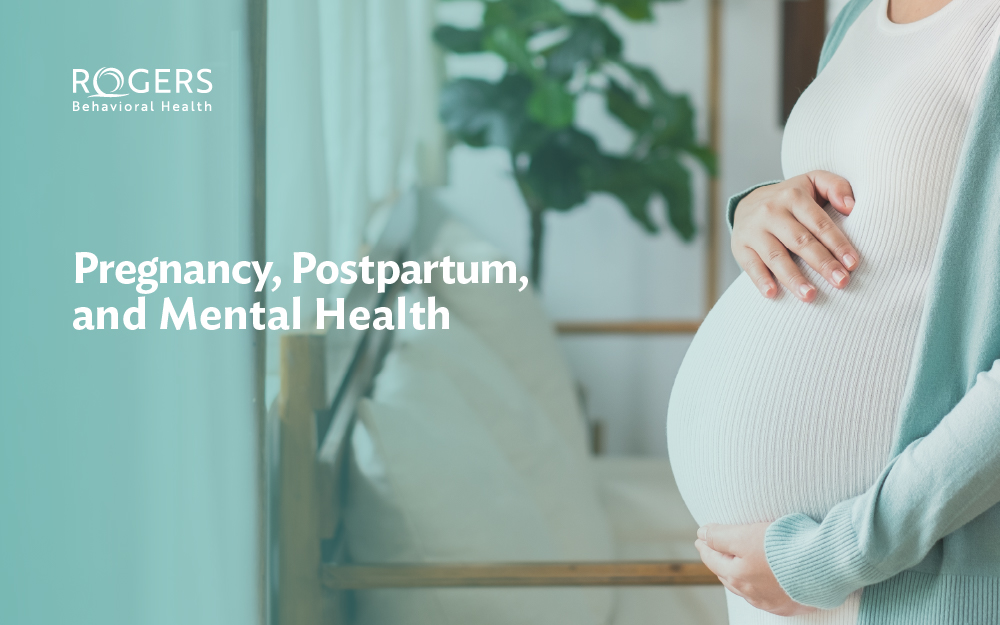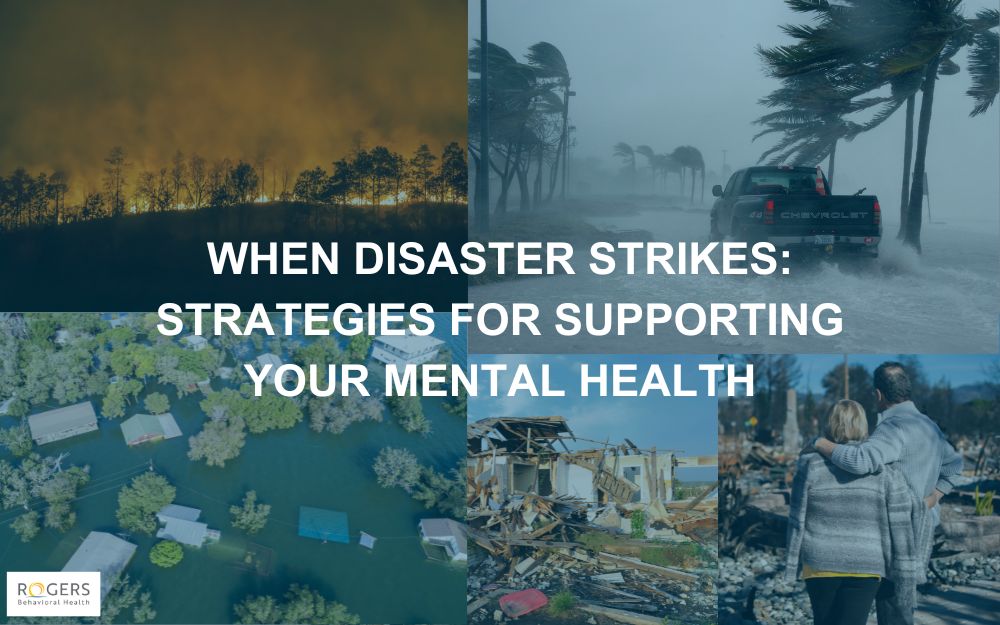10 strategies to maintain mental health during pregnancy and postpartum
Posted on 01/21/25 05:14:pm
Share this article:

Women’s physical health and mental health are deeply interconnected, especially during key life stages, like pregnancy and postpartum, and perimenopause and menopause.
In this two-part blog series, we will explore:
- Physical changes that occur.
- Mental health challenges that may arise.
- Risk factors for challenges, like depression and anxiety.

- 10 strategies for maintaining mental health.
Recognizing how physical changes can impact mental well-being is key to reducing stigma and supporting those on the journey.
What are physical changes during pregnancy?
A woman’s body undergoes numerous physical changes to support the developing fetus.
Hormonal changes: Progesterone and estrogen increase to help maintain the pregnancy and prepare the body for childbirth.
Weight gain: Women typically gain weight, which includes the weight of the baby, placenta, amniotic fluid, and increased blood volume.
Changes in the uterus: The uterus expands significantly to accommodate the growing baby. It moves up from the pelvis into the abdomen as pregnancy progresses.
Increase in blood volume: Blood volume increases to supply oxygen and nutrients to the fetus.
Digestive changes: Hormonal changes can lead to nausea, increased appetite, and changes in digestion, sometimes causing heartburn or constipation.
Skin changes: Some women may experience skin changes like stretch marks and darkening of the skin.
Fluid retention: Swelling in the feet, ankles, and hands due to fluid retention is common.
Joint and muscle changes: The body produces a hormone called Relaxin which helps ligaments and joints loosen in preparation for childbirth, leading to changes in posture and discomfort.
What are physical changes during postpartum?
During the postpartum period, a woman’s body experiences:
Uterine contraction: The uterus shrinks back to its pre-pregnancy size through a process called involution. This can cause cramping.
Vaginal changes: There can be swelling and soreness after delivery in addition to bleeding as the body expels the remaining tissue and blood from pregnancy.
Hormonal fluctuations: Estrogen and progesterone drop after birth which can affect mood and physical well-being.
Breast changes: Breasts may become engorged with milk as breastfeeding begins, and the nipples can become sore as the body adjusts to nursing.
Weight loss: Women typically lose some weight immediately after childbirth.
Pelvic floor recovery: The pelvic floor muscles, which support the bladder and uterus, may be weakened during labor and need time to recover. Pelvic floor weakness may contribute to incontinence.
Skin changes: Stretch marks may appear.
Fatigue: Many women experience fatigue as their bodies recover from the physical demands of pregnancy and childbirth, often compounded by the demands of caring for a newborn.
What mental health challenges may arise and why?
Pregnancy and postpartum are times of change filled with many emotions. While exciting and joy-filled, these stages can also bring feelings of sadness, stress, or anxiety. These experiences are common, but not always talked about.
During pregnancy and the postpartum period, women are at an increased risk for mental health challenges for a variety of factors, including the physical changes that occur.
Mood and anxiety disorders. Perinatal mood and anxiety disorders don’t have a single cause, but are likely to result from a combination of physical, emotional, and social factors. They’re not a result of something a mother does or does not do during pregnancy or after delivery. Levels of hormones (progesterone and estrogen) quickly drop which leads to chemical changes in the brain that may cause mood swings. Additionally, many mothers can’t get the rest they need to fully recover after childbirth. This chronic loss of sleep can lead to physical, mental, and emotional exhaustion, which can cause depression and anxiety.
Risk factors include:
- Symptoms of depression and/or anxiety during or after a prior pregnancy
- Having a family member diagnosed with depression
- An unplanned pregnancy or having mixed feelings about becoming a parent
- Having difficulty with breastfeeding
- Being less than 20 years of age
- Medical complications during pregnancy or childbirth
- Any prior experience with depression, anxiety, or bipolar disorder
- A recent stressful life event
- Lack of social and emotional support from family or friends
- Alcohol or other substance use issues
- History of physical, emotion, or sexual abuse, and domestic violence
Awareness of mental health challenges during pregnancy and the postpartum period has increased in recent years due to social media, advocacy, and research highlighting issues like postpartum depression and anxiety. However, significant barriers remain, including stigma, cultural beliefs, and inconsistent mental health screenings by healthcare providers. Additionally, many women lack education and resources, especially depending on where they live and their socioeconomic status. The good news is there is growing recognition that maternal health must include both physical and mental well-being, highlighting the need for better care to support mothers and their families.
What are warning signs?
- Not feeling like yourself.
- Having trouble managing emotions.
- Feeling overwhelmed.
- Experiencing mood swings for more than two weeks.
- Feeling foggy.
- Having repeated or upsetting thoughts that will not go away.
- Feeling guilty.
- Feeling anxious around your baby.
- Feeling out of touch with what is real (see, hear, feel, or smell things that other people do not).
- Feeling afraid that you may harm yourself, your baby, or someone else.
10 strategies for women to protect their mental health
We recommend ten ways women protect their mental health:
- Talk therapy. Meet with a licensed therapist or counselor.
- Medication.
- Ask for help. Don’t try and do everything yourself.
- Get enough sleep.
- Join a support group and share your experiences with other pregnant or new moms.
- Share how you’re feeling with your support system (partner, parents, siblings, friends, etc.).
- Make time to leave the house.
- Don’t make major life decisions or changes, if possible, during this time.
- Maintain a healthy diet.
- Exercise.
In our next blog, we’ll talk about perimenopause and menopause —the mental health challenges women may experience and 10 strategies for them to guard their mental health.
Rogers offers mental health support
Watch for news about a weekly group coming soon for pregnant and postpartum women.
If you or someone you love is struggling with their mental health, Rogers is here to help. Our team of experts will meet you where you are and help you find your path to recovery. To get started, call us at 833-308-5887 for a free, confidential screening.


